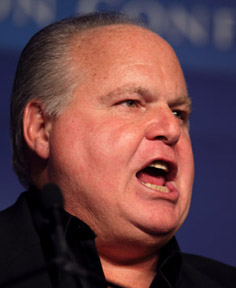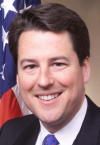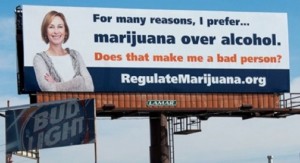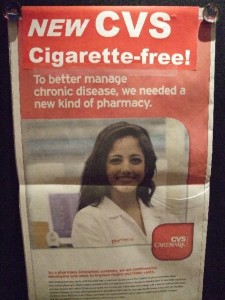Anti-Rush Limbaugh activists racked up another successful week after six more businesses vowed to drop sponsorship of the Rush Limbaugh Show on KGVO Radio in Missoula, Montana. Their success brings the total to 13 businesses that have pulled their support of the show since April 13, 2012, when a grassroots effort to push Limbaugh off Missoula’s airwaves began. The current effort to kick Limbaugh off the air in Missoula started the day after citizens delivered a 1,600-signature petition KGVO Radio asking them to take Rush Limbaugh off the local air. The radio station refused to pull the show, and the next day, on April 13, activists unveiled a website, RushOutOfMissoula.com, that lists the show’s local and national sponsors, with each business’ contact information. Citizens began dialing the business owners to express their displeasure for the businesses’ support of Limbaugh and his persistent, hate-filled rhetoric. Dave Chrismon, organizer of the Missoula anti-Limbaugh effort, posted an upbeat email update in which he reported getting positive feedback from the community for the effort. “This is from an email,” Chrismon wrote, ” ‘I just wanted to inform you that as of today, we requested our ads not be run during the Rush Limbaugh Show. . . Thank you for letting us know that our ads were being run . . . The owner had no idea and was very upset when she found out.’ Shopping yesterday, I met someone who works at one of the past advertisers. She thanked me for the effort and told me, ‘We want to avoid controversy. After we pulled our ad, a longtime supporter called and thanked us on behalf of her daughter.'” Missoula activists aren’t letting up on their effort. Their current goal is to persuade a total of 20 advertisers to drop the show. They are also thanking the businesses that have withdrawn their ads for “saying no to bullying.”
Category: Advertising
Advertising, Corporations, Energy, Environment, Ethics, Food, Health, Media
BP Ads Say Everything’s Great in the Gulf; Fisherman Report Sicknesses, Deformed Sea Life
by • • 0 Comments
Two years after the Deepwater Horizon catastrophe in the Gulf of Mexico, BP is running ads on TV promoting tourism in the Gulf of Mexico. The ads say the seafood is great, the beaches are inviting and times have never been better down in the Gulf. But reports from people who live and fish in the Gulf aren’t so great. In fact, they’re scary. Fishermen report seeing wide-scale deformities in sea life, like shrimp without eyes, tumors on their heads, crabs with rotting shells and fish with sores on their bodies. One fisherman reported catching 400 pounds of eyeless shrimp. The harvest of brown shrimp has decreased by two thirds and the white shrimp have been wiped out. Gulf families report that their children, who were well prior to the BP spill, now chronically suffer from diffuse illnesses, like inflamed sinuses, upset stomachs, rashes and allergies. Fishermen complain of headaches, chronic cough, skin rashes, vomiting and diarrhea, and bleeding from ears and nose — and they have no money to pay for medical care. Some are seeking enough money from BP to enable them to leave the Gulf coast for good.
Advertising, Ethics, Media
Dow-Funded PBS TV Series Promotes Dow and Its Product Lines
by • • 1 Comment
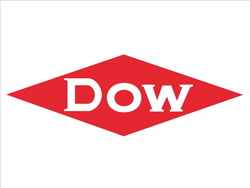 A new, four-part PBS television show airing this month called “America Revealed” is sponsored by the Dow Chemical company, whose products and commercial interests the program showcases. The arrangement leaves PBS open to charges that it is serving as a cheerleader for big industry in exchange for cash. The first episode aired on April 11, and was about large-scale agriculture — an area in which Dow is a leading business. The show examined the corn industry and portrayed controversial genetically-modified organisms (GMOs) in a positive light. Dow manufactures genetically-modified seeds. Similar, self-serving segments follow in other areas in which Dow also has commercial interests: Infrastructure/Transportation, Energy and Consumer/lifestyle.
A new, four-part PBS television show airing this month called “America Revealed” is sponsored by the Dow Chemical company, whose products and commercial interests the program showcases. The arrangement leaves PBS open to charges that it is serving as a cheerleader for big industry in exchange for cash. The first episode aired on April 11, and was about large-scale agriculture — an area in which Dow is a leading business. The show examined the corn industry and portrayed controversial genetically-modified organisms (GMOs) in a positive light. Dow manufactures genetically-modified seeds. Similar, self-serving segments follow in other areas in which Dow also has commercial interests: Infrastructure/Transportation, Energy and Consumer/lifestyle.
Advertising, Grassroots advocacy, Lobbying, Media
Seven Sponsors Drop Rush Limbaugh in Missoula
by • • 2 Comments
The grassroots effort to push Rush Limbaugh off KGVO radio in Missoula, Montana saw major success this week after seven local advertisers pulled their ads off the show. Dave Chrismon, organizer of the effort get Limbaugh off KGVO, started RushOutOfMissoula.com, a website that lists businesses that sponsor Limbaugh’s show. RushOutOfMissoula supporters started contacting the listed businesses and telling the owners how they feel about their support “for this bully.” In response, seven businesses pulled their ads quickly, in under a week. Chrismon updates the list regularly to reflect which businesses have quit advertising on the show. The grassroots success is not coming without difficulty, though. Some Limbaugh sponsors are digging in their heels and adopting a bully approach themselves. Chrismon reports receiving a number of heavy-handed emails from some local business owners. One wrote, “You’re a coward and a liar. You are dangerous to a free society. A gas chamber mentality. You want to silence those you do not agree with. You bad-mouth and bully those who are not even a part of your emotional tantrum of passion (didn’t you accuse rush of those very tactics).” Another advertiser threatened, “ . . . your blackmail approach is going to get you in court starting now. I am inquiring about a class action suit to show you just how wrong you can be. . . If (our business) is not taken off your site and a letter of apology to follow by noon, April 19th, 2012, legal council will be put into place. Blackmail is still illegal as you will find out.” Chrismon also says KGVO is comparing the total number of signatures on the anti-Limbaugh petition citizens delivered earlier this month to the total of pro-Limbaugh emails they are getting through their website’s feedback form, and they say petition supporters are losing. But citizens aren’t giving up. They are redoubling their efforts to call the remaining sponsors and tell them how they feel about Limbaugh, and urge them to drop their support for the show.
Advertising, Consumer advocacy, Ethics, Front groups, Media, politics, Secrecy
Federal Court Says Groups Can’t Keep Campaign Donors Secret
by • • 0 Comments
A District Court in Washington, D.C, ruled (pdf) earlier this month that it is illegal for groups to keep secret who funds their political attack ads. At the heart of the case was a regulation promulgated by the Federal Elections Commission (FEC) in December of 2007 that required disclosure of the names and addresses funders who donate $1,000 or more to organizations for electioneering communications. But the FEC, in interpreting the law, deferred to the argument that keeping track of such donations would inordinately burden corporations. In attempting to clarify the law, the FEC created a huge loophole by promulgating a follow-up rule that allowed groups to circumvent disclosure provisions required by campaign finance laws, like the Bipartisan Campaign Reform Act, and the Supreme Court’s 2010 Citizens United ruling. The disclosure provisions in Citizens United have largely been overlooked. In Citizens United, justices wrote that “the public has an interest in knowing who is speaking about a candidate shortly before an election,” and “transparency enables the electorate to make informed decisions and give proper weight to different speakers and messages.” U.S. Rep. Chris Van Hollen, Jr. (D-Maryland) challenged FEC’s loophole in a lawsuit brought against the FEC in 2011.
Advertising, Energy, Ethics, Front groups
Pain at the Pump Funds Huge Pay Raises for Energy Executives
by • • 1 Comment
Gasbuddy.com, the website that logs gas prices across the U.S., has a big blue banner ad at the top of its pages that says “Where’s your gasoline dollar go? Click here to find out.” Clicking on the ad takes you to a page, GasPricesExplained.org, that says “Why are Gas Prices Rising?” GasPricesExplained.org points to unrest in the middle east and north Africa, declines in surplus production, weather events and exchange rates, to name a few reasons why gas prices are skyrocketing, but it doesn’t directly address the sizeable contribution speculation makes to inflated gas prices. A section titled “Where Does My Money Go?” claims that “Most of what Americans pay at the pump for gasoline is the cost of the crude oil used to make it, which is why global demand and geopolitical factors are so important.” But the site fails to mention that sky-high gas prices are also funding huge pay hikes for energy industry CEOs. Exxon Mobil’s Chief Executive, Rex Tillerson, for example, got a 21 percent raise in pay in 2011. He now makes about $35 million in total compensation. Tillerson is expected to get an additional 8 percent raise in 2012. John Watson, Chair and CEO of Chevron, saw his pay increase a whopping 51 percent, just since just 2010.
Advertising, Consumer advocacy, Lobbying, Media
Missoula Citizens Deliver Petition Against Rush Limbaugh
by • • 0 Comments
On April 12, 2012 a group of citizens in Missoula, Montana delivered a “Take Rush Limbaugh off the air in Missoula” petition containing more than 1,600 signatures to KGVO Radio in Missoula, which broadcasts the show. KGO representatives politely explained to meeting attendees why they did not want to end the Rush Limbaugh show, saying too many people support Rush, and they have contracts to broadcast the show. Shortly after the meeting, though, Dave Chrismon, who headed up the petition project, unveiled a new website, RushOutOfMissoula.com, that lists Rush’s sponsors on KGVO as of April 13, 2012, along with their contact information. Local sponsors include Triple Play Family Fun Park, Grizzly Fence and the Computer Guys, among others. Some national sponsors on the list are Tax Resolution Services, Fram Oil Filters, Curves for Women, Match.com, Lear Capital, Insperity, and LifeLock. The site pledges to update the list of advertisers regularly and list any advertisers that drop their support of the show. RushOutOfMissoula.com also includes a link to a YouTube video message by Dave Strohmaier, who is running for the U.S. House of Representatives in Montana, condemning Rush’s negative discourse and hateful rhetoric, and supporting the effort to get him off the air. RushOutOfMissoula.com urges people to be kind when they contact advertisers, saying “We are all very passionate, but don’t lose your cool. We don’t want anyone to act like Rush.”
Advertising, Consumer advocacy, Health, Marketing
FDA Orders Sexual Dysfunction Warning Added for Merck Baldness Drug Propecia
by • • 0 Comments
 If your hairline is receding and you’re are thinking about taking Merck’s baldness drug Propecia, you might want to think again. The U.S. Food and Drug Administration (FDA) ordered drug maker Merck to change the warning labels for Propecia and its prostate drug Proscar to include “libido disorders, ejaculation disorders and orgasm disorders,” conditions that FDA notes may continue well after patients stop taking the drugs. While FDA says it isn’t clear whether finasteride, the active chemical in Propecia and Proscar, is what causes the persistent sexual problems, side effects reported by those using the drugs “suggest a broader range of adverse effects than previously reported in patients taking these drugs.” FDA approved Proscar in 1992 and Propecia in 1997. Since then, the agency has reviewed 421 post-marketing reports of sexual dysfunction from those taking Propecia between 1998 and 2011. Of those, 59 cases described sexual dysfunction lasting a minimum of three months after discontinuing Propecia. FDA reviewed 131 reports of similar problems associated with Proscar. In 2011, FDA ordered the warning labels of both product be revised to include erectile dysfunction that continues after patients stop taking the drug. People can report adverse side effects of prescription drugs to FDA’s MedWatch hotline at 1-800-332-1088, report them online at MedWatch Online or through the U.S. mail using the MedWatch form (pdf) available at FDA’s website.
If your hairline is receding and you’re are thinking about taking Merck’s baldness drug Propecia, you might want to think again. The U.S. Food and Drug Administration (FDA) ordered drug maker Merck to change the warning labels for Propecia and its prostate drug Proscar to include “libido disorders, ejaculation disorders and orgasm disorders,” conditions that FDA notes may continue well after patients stop taking the drugs. While FDA says it isn’t clear whether finasteride, the active chemical in Propecia and Proscar, is what causes the persistent sexual problems, side effects reported by those using the drugs “suggest a broader range of adverse effects than previously reported in patients taking these drugs.” FDA approved Proscar in 1992 and Propecia in 1997. Since then, the agency has reviewed 421 post-marketing reports of sexual dysfunction from those taking Propecia between 1998 and 2011. Of those, 59 cases described sexual dysfunction lasting a minimum of three months after discontinuing Propecia. FDA reviewed 131 reports of similar problems associated with Proscar. In 2011, FDA ordered the warning labels of both product be revised to include erectile dysfunction that continues after patients stop taking the drug. People can report adverse side effects of prescription drugs to FDA’s MedWatch hotline at 1-800-332-1088, report them online at MedWatch Online or through the U.S. mail using the MedWatch form (pdf) available at FDA’s website.
Advertising, Health
NFL Players Promote Adult Diapers
by • • 1 Comment
NFL football players endorsing products for money isn’t new, but DeMarcus Ware of the Dallas Cowboys, Wes Welker of the New England Patriots and Clay Matthews of the Green Bay Packers have all agreed to try on “Depend” adult undergarments and promote them by wearing them on the field — and on camera — while running drills. Kimberly-Clark, the maker of Depends, has a new ad campaign called the “Great American Try On,” in which American celebrities and sports icons wear the underwear in public in exchange for hefty donations to selected charities. Sexy actress Lisa Rinna appears in a new ad in which she announces she is wearing the company’s new “Silhouette” product under a slinky, form-fitting black dress while walking the red carpet with her husband.
Advertising, Consumer advocacy, Corruption, Health, Marketing, Safety
Johnson & Johnson Fined $1.2 Billion for Illegal Drug Marketing
by • • 1 Comment
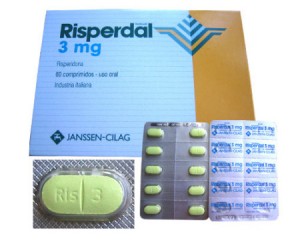 The state of Arkansas has ordered Johnson & Johnson and one of its subsidiaries, Janssen Pharmaceuticals, to pay $1.2 billion in fines for deceptively marketing the antipsychotic drug Risperdal, approved to treat conditions like schizophrenia and bipolar disorder. The companies were accused of failing to provide adequate warning about potential side effects of the drug, which include diabetes, weight gain, neurological problems and increased risk of strokes and death in elderly patients with dementia. Fletch Trammell, a lawyer in the case who had used Risperdal, said that J&J hid studies that showed Risperdal caused diabetes at a higher rate than a competing drug. The court also found nearly 240,000 instances in which the companies violated the state laws against Medicaid fraud, with each count representing one prescription for Risperdal written to a state Medicaid patient over a 3 1/2 year period. The fine for the Medicaid fraud portion of the case, at $5,000 per prescription, was the state’s minimum. A 12 person jury deliberated for three hours before finding against J&J. Arkansas is just one of several states suing over Risperdal. South Carolina and Texas have already reached settlements with J&J in their lawsuits. J&J plans to appeal the Arkansas ruling, claiming it did not break the law and that the package insert that comes with the medication was approved by the U.S. Food and Drug Administration.
The state of Arkansas has ordered Johnson & Johnson and one of its subsidiaries, Janssen Pharmaceuticals, to pay $1.2 billion in fines for deceptively marketing the antipsychotic drug Risperdal, approved to treat conditions like schizophrenia and bipolar disorder. The companies were accused of failing to provide adequate warning about potential side effects of the drug, which include diabetes, weight gain, neurological problems and increased risk of strokes and death in elderly patients with dementia. Fletch Trammell, a lawyer in the case who had used Risperdal, said that J&J hid studies that showed Risperdal caused diabetes at a higher rate than a competing drug. The court also found nearly 240,000 instances in which the companies violated the state laws against Medicaid fraud, with each count representing one prescription for Risperdal written to a state Medicaid patient over a 3 1/2 year period. The fine for the Medicaid fraud portion of the case, at $5,000 per prescription, was the state’s minimum. A 12 person jury deliberated for three hours before finding against J&J. Arkansas is just one of several states suing over Risperdal. South Carolina and Texas have already reached settlements with J&J in their lawsuits. J&J plans to appeal the Arkansas ruling, claiming it did not break the law and that the package insert that comes with the medication was approved by the U.S. Food and Drug Administration.
Main source: New York Times, April 11, 2012
Advertising, Health, Lobbying, politics, Safety
Billboard Campaign Promotes Marijuana Legalization in Colorado
by • • 0 Comments
A big new billboard has appeared right over a liquor store near Mile High Stadium in Denver that shows a mainstream, straight-laced looking woman smiling with her harms folded, saying, “For many reasons, I prefer…marijuana over alcohol. Does that make me a bad person? RegulateMarijuana.org.” The board is the first in an educational campaign by backers of the Regulate Marijuana Like Alcohol Act, a measure that will appear on the state’s November election. The group backing the measure seeks to educate people about the ways that marijuana is safer than alcohol, specifically that it is less addictive than alcohol and tends to cause fewer adverse health effects. Users also cannot overdose on marijuana. The measure would permit limited possession and cultivation of marijuana by adults, and would let state and local governments in Colorado regulate the commercial production and distribution of marijuana or ban marijuana sales completely within their jurisdictions. On its website, the pro-legalization campaign says, “We are not suggesting that marijuana is better than alcohol … We are simply asserting that there are many good reasons to use marijuana instead of alcohol.”
Advertising, politics, Religion
TV Ad Promotes Separation of Church and State
by • • 0 Comments
The Freedom From Religion Foundation is running a television ad promoting the separation of church and state, the first such ad of its kind to be shown on major television. The ad is running on NBC’s Sunday “Meet the Press” show and all this week on MSNBC’s “Rachel Maddow Show” Monday, Tuesday, Wednesday and Thursday 9-10 p.m., Eastern Central. FFRF’s ad played twice on the Monday “Rachel Maddow Show.” The Freedom From Religion Foundation works to promote the constitutional principle of separation between church and state and educate the public about non-theism. The Foundation has over 17,000 members. Since 1978, the Foundation has acted on countless violations of the separation of state and church, and has won many significant victories, including lawsuits to end state/church entanglements.
Advertising, Ethics, Health, Tobacco
CVS Drug Stores Tout Healthy Image While Profiting from Disease & Death
by • • 2 Comments
For 103 days now, Terence Gerace, Ph.D. has stood outside CVS pharmacies in Washington, D.C. protesting their sales of a product that is known to be deadly when used exactly as directed: cigarettes. In press releases and ads, CVS claims it works to improve health and lower health care costs for Americans, but all the while it continues to sell the leading causes of preventable death and disease in the U.S. No matter what they say in their ads, the truth is that CVS, and other national drug chains, like Rite Aid and Walgreens (pdf), do not care about health one bit. They care about profits, and every day they profit from both causing and curing disease. Pharmacies are among the most trusted sources of health information in the U.S., but for decades, national drug chains have actively colluded behind the scenes with tobacco companies not only to market cigarettes, but also to oppose legislation (pdf) to regulate tobacco. Dr. Gerace, a former Research Associate Professor in the Department of Epidemiology and Public Health at the University of Miami School of Medicine, knows all of this, so it’s no wonder he saw red after spotting a full-page CVS ad in the Washington Post that screamed, “To better manage chronic diseases, we needed a new kind of pharmacy…” Incensed, Dr. Gerace made a new sign out of the ad by adding the big words “NEW CVS Cigarette-Free!” above the headline. Now he uses this sign in his ongoing, one-man protest against CVS selling cigarettes. In 2010, the American Pharmacists Association issued a statement urging U.S. pharmacies to stop selling tobacco. Boston and San Francisco have passed laws forcing pharmacies to stop selling cigarettes, and Target, the nation’s third-largest retailer chain, stopped selling cigarettes in 1996. It is counter-intuitive, inimical to their mission and just plain two-faced for a business to portray itself as caring about people’s health while also selling cigarettes, but until a law forces them stop, CVS, as well as Rite Aid and Walgreens, plan to keep advertising that they care about health while continuing to sell the leading cause of death and disease in the U.S.
Advertising, Ethics, Marketing, Media
Vodka Ad Jokes About Sexual Assault, Gets Yanked
by • • 0 Comments
The makers of Belvedere Vodka yanked a controversial ad that appeared to joke about rape. The ad showed a horrified woman trying desperately to escape from a leering man who was grabbing her from behind. The tagline read, “Unlike some people, Belvedere always goes down smoothly.” The company tweeted the controversial ad and posted it on their Facebook page, only to get strong and immediate backlash. Belvedere moved quickly to remove the post and apologized several times. Belvedere’s ad agency, Arnell Group, has done ads with strong sexual overtones for the brand before, but the agency denies that it created this particularly controversial ad.
Main Source: Ad Age, March 23, 2012
Advertising, Marketing
Two Men Sell Their Faces To Pay Off Student Debt
by • • 0 Comments
Two young British men desperate to pay off student debt and facing dismal prospects for employment have started selling ad space on their faces — and are doing remarkably well at, it while having a blast. Ross Harper and Ed Moyse, both 22, created BuyMyFace.com, where people go to schedule the time they want rent the two young mens’ faces. Customers then upload a logo or picture along with any brief text they want displayed, and then, on the appropriate dates, Harper and Moyse have the specified graphics expertly painted on their faces and go out and about in public sporting the ads. Advertisers can send the two men to festivals, skiing, skydiving, go-karting or on other adventures to help boost visibility of their ads. The two are advertising their service on Facebook, Twitter, YouTube and LinkedIn, as well as through newspapers and word of mouth. The big, London-based audit and financial advisory firm Ernst and Young bought ten days’ worth of advertising on BuyMyFace.com in December, 2011, and have since become exclusive sponsor of the BuyMyFace.com website. In addition to winning the firm’s valuable sponsorship, thousands of people are visiting BuyMyFace.com every day. Days are sold for the next two months, ranging in price from £150-600 (U.S. $238-955). Now, at day 180 of their unique effort, Harper and Moyse have earned £32,682 (about U.S. $52,000) toward paying off their student loans.
Source: PRWeb UK, March 29, 2012
Advertising, Lobbying, Media
Backlash Against Limbaugh Continues
by • • 1 Comment
Media Matters for America is embarking on a long-term effort to further weaken bombastic radio talk show host Rush Limbaugh by peeling away advertisers from his show. The group bought $100,000 worth of radio air time to run two ads in eight major U.S. cities that already have active local campaigns to push Limbaugh off the air: Boston, Cedar Rapids, Chicago, Detroit, Macon (Georgia), Milwaukee, Seattle and St. Louis. The ads use recordings of Limbaugh making his repeated verbal attacks on Ms. Fluke to make their point. After railing against law student Sandra Fluke by calling her a “slut” and “prostitute” for her testimony before members of Congress about the necessity of funding contraception, Limbaugh made 46 additional personal attacks on her over the next three days. Attacks against Limbaugh are continuing on other fronts, as well. The National Organization for Women (NOW) is also protesting Limbaugh. Members of the Missouri chapter of NOW sent hundreds of rolls of toilet paper to Missouri’s Speaker of the House, Steve Tilley (R), to encourage him to “flush Rush.” On March 5, Tilley made the decision to add Limbaugh to the Hall of Famous Missourians in the states’ capitol building. People inducted into the Hall are represented by sculpted busts displayed at the Capitol. Numerous lawmakers have protested Limbaugh’s inclusion in the Hall, and sent letters to Tilley asking him to reconsider his decision. Currently the decision over who to include in the Hall is made solely by Missouri’s House Speaker, but Missouri Democrats are trying to change that so bipartisan approval will be required for future inductees. In still another front in the assault on Limbaugh, the Los Angeles City Council voted 13-2 in favor of a resolution urging L.A. television and radio broadcasters to ensure on-air hosts do not use racist or sexist slurs over public airwaves. In addition to Limbaugh’s extended and particularly vile outburst, they were also prompted to issue the resolution after KFI radio hosts of the “John and Ken Show” — and L.A. talk show –referred to Whitney Houston as a “crack ho.” The show was pulled off the air briefly as a result.
Click here to hear one of Media Matters’ radio ads against Rush Limbaugh.
Advertising, Consumer advocacy, Health
The Lap Band Trap
by • • 0 Comments
Billboards showing up across the U.S. encourage people to shed extra pounds by undergoing lap band surgery. The ads leverage people’s insecurities about their weight to drive them to an expensive and risky surgical solution. A particularly aggressive lap-band billboard campaign has plagued image-conscious southern California for months. Huge ads along L.A. freeways screamed, “Lose weight with the lap-band! Safe, 1-hour, FDA-approved. 1-800-GET THIN”. The ads made lap-band surgery sound fast and easy. They were also practically inescapable. One L.A. freeway had 25 lap-band billboards in just a four-mile stretch, and the boards were up for months alongside most of southern California’s freeways. They bore no information about the qualifications needed for the surgery, or the risks it poses — not even in fine print. People who dialed 1-800-GET THIN heard an automated greeting from a “celebrity physician” assuring them the lap band is approved by the FDA and is “extremely effective” at helping people lose weight. But just like the billboards, the telephone recording didn’t mention any risks, contraindications or qualifications to get the surgery. In addition to the ubiquitous billboards, 1-800-GET THIN ads also appeared in newspapers, on bus placards, on TV and the Internet, featuring people who claimed to have shed huge amounts of weight and regained control over their lives through lap-band surgery.
Dangerous Ads, Bad Doctors
Many people who called 1-800-GET THIN found they got more than they bargained for — way more, and not in a good way. Laura Faitro was one of those people.
Ms. Faitro underwent the lap band surgery after calling 1-800 GET THIN. The procedure was performed in a day-surgery suite of an office building, and her insurance covered just $3,000 of the $12,200 cost. During the procedure, her doctor lacerated her liver and called other doctors in to assist him. He discharged Ms. Faitro shortly after her surgery, even though she complained of severe abdominal pain. Soon after the doctor sent her home, she had to go to the emergency room for her abdominal pain. Five days later, Ms. Faitro was dead from “multi-organ failure due to shock secondary to bleeding and sepsis” in her abdominal cavity. Her husband, John Faitro, recently filed a class action against the surgery centers that advertised the procedure. But why a class action if this was an isolated case?
Because it’s not an isolated case.
Laura Faitro is one of at least five southern California patients who lost their lives after responding to the 1-800-GET THIN ads and having lap-band surgery done at one of the clinics affiliated with the ad campaign. The clinics were operated by two doctors, Michael and Julian Omidi, brothers affiliated with a Beverly Hills medical business called TopSurgeons. Investigation later revealed that Julian Omidi’s medical license had been revoked after the California Medical Board found he had lied on his license application. He omitted information from his application that would have led the Board to discover that, while attending the University of California at Irvine from 1986-1990, he had been expelled over his involvement in the burglary of exam papers. The California Medical Board also sanctioned Julian’s brother, Michael, with three years’ probation for gross negligence in his treatment of liposuction patients in 2005. Michael Omidi had improperly administered anesthetics, and allowed unlicensed staff to suture up patients and even perform liposuction.
In December, 2011, FDA took action against 1-800-GET THIN-affiliated clinics and their misleading ad campaign. That same month, FDA issued a warning to consumers about the fraudulent lap band surgery ads, and the risks and side effects of such surgery. FDA has also issued warning letters to advertisers about misleading lap band surgery ads. In February, 2012, Allergan, manufacturer of the lap-band, announced that it would stop selling the device to surgery centers affiliated with the 1-800-GET THIN ads. On February 8, 2012, the Los Angeles Times reported on a whistleblower lawsuit by two former surgery center employees who allege that clinics affiliated with the 1-800-GET THIN ads operated unsanitary surgical facilities and padded their bills with extra charges for medically unnecessary procedures and surgeries they never actually performed.
Widespread, Uncritical Promotion of Lap Band Surgery
Despite the lap-band surgery debacle unfolding in California, the multiple deaths associated with the lap-band and FDA’s growing number of warnings about lap-band ads and about the procedure itself, direct-to-consumer advertising for lap-bands is now spreading throughout the country. Messages pushing the surgery are targeting weight-conscious consumers across a range of media. On January 26, 2012, for example, an NBC TV affiliate in Grand Junction, Colorado, ran a completely uncritical local TV news story about lap-band surgery. The report focused on a single patient who so far has suffered no ill effects from the surgery. Like the ads that flooded L.A., the NBC story failed to mention any potential side effects, risks, qualifications or contraindications for the surgery, or FDA’s ongoing sanctions against advertisers for misleading ads that make the procedure sound quick and simple. Nor did the report mention lap-band patients’ deaths. Coincidentally, the NBC news report appeared at the same time billboards started showing up in Grand Junction promoting lap-band surgery. While the ads are less aggressive than California’s, they still lack any warnings about the risks or side effects of the procedure, as required by FDA. A call to the reporter at the Grand Junction NBC affiliate who did the lap band story said she was unaware that billboards promoting the procedure had gone up at the time she did the news report, and insisted the idea for the story was entirely her own.
FDA continues to post consumer updates on the serious risks and side effects of gastric bands. They also post information about serious patient complaints about lap-bands, like this one, where a lap band slipped and left “three quarters” of the patient’s stomach “in a necrotic state.” The patient complained of throwing up for days, got dehydrated, and developed a rapid heart beat. It wasn’t until emergency surgery was done that doctors discovered her lap-band had slipped.
So far, advertisers have ignored FDA requirements that they make people aware of the dangers and side effects of bariatric surgery. That could be intentional. If they perform this type of operation purely as an elective surgery on people who don’t fit the medical qualifications, the surgery must be paid for out of pocket, without the involvement of insurance companies. That makes the procedure a cash cow for surgical centers and doctors who perform it, which explains the ubiquity of the ads promoting it.
Granted, lap band surgery has the potential to greatly benefit some people who are medically qualified for the procedure and who work with reputable doctors to have the surgery done properly, with appropriate follow-up care. But common sense dictates that the right way to decide to undergo a risky surgical procedure is not from reading roadside billboards put up by ruthless doctors who care more about money than patient care. Every surgical procedure has risks. Before considering gastric surgery, people need to do a lot of homework, ask a lot of questions, and thoroughly weigh the pros and cons. Lap-band surgery should draw even more scrutiny because of the insidious and dangerous way it is being marketed to large numbers of clueless people — many of whom, like so many of us, are undoubtedly insecure about their weight, and lack a medical education.
Advertising, Media
Limbaugh Exhibits Bravado While Continuing to Hemhorrage Sponsors
by • • 0 Comments
Rush Limbaugh is putting on a bombastic front as advertisers continue their exodus from his show in the wake of his incendiary string of insults against a third-year law student, Sandra Fluke, who testified before House Democrats in favor of Obama’s policy on keeping contraception available to women. The Hollywood Reporter noted that the three hour-long broadcast of Limbaugh’s show March 9 on New York’s station WABC 770 AM contained a total of five minutes of completely dead air time, and that the ads run during the show were mostly unpaid public service announcements. Of the 86 ads that aired, 77 were free public service announcements and seven were for sponsors who have already asked to remove their ads from the show. As of March 8th, 49 sponsors have asked to discontinue their ads on Limbaugh’s show. The most recent companies pulling out include The Girl Scouts of Oregon and Southwest Washington, Aetna, TurboTax, O’Reilly Auto Parts, the American Heart Association, Constant Contact, the New York Lottery, Service Magic, AccuQuote, Regal Assets, Freedom Debt Relief. Other big-name companies that pulled their ads this week included Netflix, Goodwill Industries, Stamps.com, Capitol One, JC Penney, AOL and Sears. Two radio stations have also taken the Limbaugh show completely off their air. Limbaugh minimized the significance of the losses by boasting that he has 18,000 advertisers nationally when local advertisers are included. He equated the flood of advertisers who have already quit his show to “losing a couple of french fries in the container when its delivered to you at the drive-thru.”
Main Source: The Hollywood Reporter, March 8, 2012

